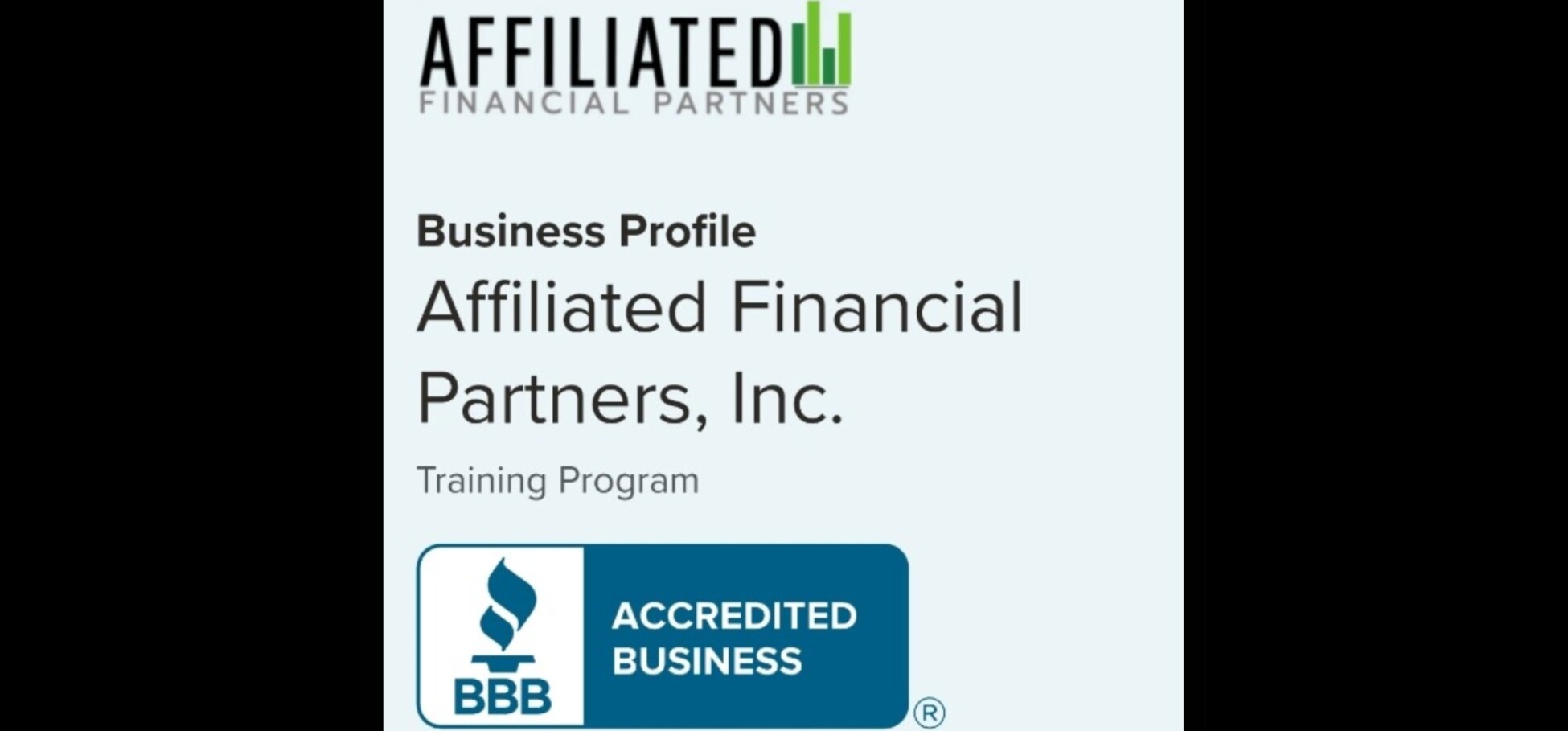
Danny Vesokie | Affiliated Financial Partners
EducationForum Replies Created
-
Danny Vesokie | Affiliated Financial Partners
MemberJune 20, 2024 at 7:39 pm in reply to: Illinois Tollway BoothsThe Illinois Tollway system has undergone significant changes over the years. Here’s an overview of the current situation with Illinois tollway booths:
Cashless System: As of 2020, the Illinois Tollway system transitioned to all-electronic tolling. Traditional toll booths where drivers could stop and pay cash have been phased out.
I-PASS and E-ZPass: The primary method for paying tolls is through I-PASS or E-ZPass transponders. These electronic devices allow automatic toll payments as vehicles pass through toll points.
Pay By Plate: The system uses license plate recognition for those without I-PASS or E-ZPass. Drivers can pay online within 14 days of their trip without additional fees.
Toll Plazas: While traditional booths are gone, overhead gantries and signage still indicate toll points. These gantries house cameras and sensors for electronic toll collection.
Rates: Toll rates vary depending on the vehicle class and whether the driver uses I-PASS/E-ZPass or the Pay By Plate system. Generally, I-PASS/E-ZPass users pay lower rates.
Grace Period: There’s typically a grace period for paying missed tolls without incurring additional fees.
Violations: Failure to pay tolls can result in fines and fees.
Customer Service Centers: While physical toll booths are gone, customer service centers still exist for account management and assistance.
Mobile App: The Illinois Tollway offers a mobile app for managing accounts, paying tolls, and planning trips.
Future Plans: Tollway continues to invest in modernizing its infrastructure and improving its electronic tolling system. For the most current information on toll rates, payment methods, or any recent changes to the system, it’s best to check the official Illinois Tollway website or contact their customer service directly. The system may have undergone further updates since my last knowledge update.
-
Danny Vesokie | Affiliated Financial Partners
MemberJune 20, 2024 at 7:35 pm in reply to: Election of 2024: Who Are The Candidates For PresidentDonald Trump has secured the Republican nomination for President. However, as of my last update, his choice for vice president had not been officially announced.
On the Democratic side, Joe Biden is running for re-election with Kamala Harris as his running mate. Despite speculation and rumors, this remained the official Democratic ticket as of my last update.
It’s important to note that official announcements and changes can occur rapidly in politics. For the most up-to-date and accurate information, I recommend checking official campaign websites, statements from the political parties, or reliable news sources.
While there have been challenges to the economic situation, it’s important to rely on official economic data for accurate assessments. Economic indicators can be complex and are often subject to different interpretations.
Concerns about competence, transparency, and the best interests of Americans are important issues that voters often consider. I encourage voters to research candidates’ positions and track records and propose policies from reliable sources to make informed decisions. I suggest to consult recent official sources or reputable news outlets for the most current details on candidates, economic data, and campaign developments.
-
Danny Vesokie | Affiliated Financial Partners
MemberJune 20, 2024 at 3:07 am in reply to: Crooked Politicians -
Danny Vesokie | Affiliated Financial Partners
MemberJune 19, 2024 at 11:26 pm in reply to: What is the Role of the Federal Reserve BoardFederal Reserve Overview: The Federal Reserve (the Fed) is the central banking system of the United States, established in 1913 to provide the country with a safe, flexible, and stable monetary and financial system. The Federal Reserve Board of Governors oversees the Federal Reserve System, including setting monetary policy, supervising and regulating banks, maintaining financial stability, and providing financial services.Criticisms and Political Statements: Former President Donald Trump has been a vocal critic of the Federal Reserve and its policies, especially regarding interest rates and monetary policy. During his presidency and afterward, he expressed dissatisfaction with the Fed’s decisions, often calling for lower interest rates to stimulate economic growth.Federal Reserve and Monetary Policy: The Fed controls monetary policy primarily through interest rate adjustments and open market operations. Its goals are to manage inflation, maximize employment, and stabilize the financial system.
Gold Standard: The U.S. dollar has not been backed by gold since 1971, when President Nixon ended the Bretton Woods system, moving the dollar to a fiat currency system. This means the dollar’s value is not tied to any physical commodity but to the government’s decree.
Inflation and Interest Rates: Federal Reserve Chairman Jerome Powell has managed interest rates in response to inflation. Recently, there have been mixed signals about future rate cuts, reflecting the Fed’s cautious approach to ensure inflation remains under control.
Economic Policies: Treasury Secretary Janet Yellen has commented on the state of the economy, suggesting that recent economic policies have helped avoid severe recessions and facilitated a “soft landing.”
Political Perspectives: Former President Trump and some supporters criticize the Federal Reserve and current economic policies, suggesting they favor elites and lead to economic instability. They argue for more radical changes, including potential restructuring or elimination of the Federal Reserve Board. However, such actions would require significant legislative changes and face substantial opposition.
The Federal Reserve plays a critical role in managing the U.S. economy, and its actions are often the subject of political debate. While criticisms from political figures like former President Trump reflect broader concerns about economic management, any substantial changes to the Federal Reserve would involve complex political and economic considerations.
-
Danny Vesokie | Affiliated Financial Partners
MemberJune 19, 2024 at 10:01 pm in reply to: FHA Loans During Chapter 11 BankruptcyQualifying for an FHA loan during Chapter 11 bankruptcy is challenging but possible. It typically requires meeting specific criteria and navigating through various conditions. Here are the steps and considerations to help you understand how to qualify for an FHA loan during Chapter 11 bankruptcy:
Steps to Qualify for an FHA Loan During Chapter 11 Bankruptcy
Understand FHA Loan Requirements:
Credit Score: The minimum credit score for a 3.5% down payment is 580, but some lenders may require higher scores.
Debt-to-Income Ratio (DTI): A DTI ratio of 43% or lower is generally preferred.
Income Verification: Steady and verifiable income is necessary.
Wait Periods and Exceptions:
Automatic Stay: Chapter 11 bankruptcy involves an automatic stay, which can complicate getting new credit.
Court Approval: During bankruptcy, you must get court approval to incur new debt, including an FHA mortgage.
Trustee’s Approval: The bankruptcy trustee must approve the new debt.
Rebuild Credit During Bankruptcy:
Timely Payments: Ensure all bankruptcy payments are made on time.
Monitor Credit Reports: Regularly check your credit report to ensure accuracy and address any discrepancies.
Documentation:
Bankruptcy Documentation: Provide documentation of the bankruptcy filing and repayment plan.
Income Proof: Submit proof of income, such as pay stubs, tax returns, and bank statements.
Work with Lenders Experienced in FHA Loans and Bankruptcy:
Specialized Lenders: Seek out lenders with experience working with borrowers in Chapter 11 bankruptcy.
Mortgage Brokers: Consider working with a mortgage broker who can help find suitable lenders.
Conditions to Meet
Stable Financial Situation: Demonstrate a stable financial situation post-bankruptcy filing.
Repayment Plan: Show consistent and on-time payments by your Chapter 11 repayment plan.
Court and Trustee Approval: Obtain necessary approvals from the bankruptcy court and trustee.
Tips for Improving Your Chances
Consult with a Bankruptcy Attorney: Work closely with your bankruptcy attorney to understand the process and obtain necessary approvals.
Improve Credit Score: Engage in credit-building activities to improve your credit score.
Save for Down Payment: Ensure you have enough for the closing costs.
Resources for Further Guidance: FHA Bad Credit Lenders https:/www.fhabadcreditlenders.com/ While qualifying for an FHA loan during Chapter 11 bankruptcy is complex, it can be achieved with careful planning, adherence to requirements, and working with experienced professionals. Demonstrating financial stability, securing necessary approvals, and continuously monitoring and improving your credit profile are essential.
fhabadcreditlenders.com
FHA Bad Credit Lenders Is a Lender and Not a Lead Generation Company. Over 70% of Our Borrowers Are Folks Denied by Other Lenders or Could Not Qualify For an
-
Danny Vesokie | Affiliated Financial Partners
MemberJune 19, 2024 at 9:55 pm in reply to: Get Qualified Commercial Loans from your CRE BankersTo get qualified commercial loans, especially if you have borrowers denied by traditional commercial bankers, it is essential to understand the landscape of alternative commercial financing options and how to reach out to potential lenders effectively. Here’s a comprehensive approach to help you get started:
Understanding Commercial Loans
Types of Commercial Loans:
SBA Loans: Backed by the Small Business Administration, these loans have favorable terms and lower down payment requirements.
Traditional Bank Loans: Standard commercial loans banks offer typically require strong credit and collateral.
Bridge Loans: Short-term loans bridge the gap between other financing until long-term financing is secured.
Hard Money Loans: Short-term loans are based on the value of the property rather than the borrower’s creditworthiness.
Commercial Real Estate Loans: Specific to purchasing or refinancing commercial property.
Qualifications:
Credit Score: Higher scores increase the likelihood of approval.
Down Payment: Typically required, ranging from 10% to 30%.
Collateral: Assets to secure the loan.
Debt-to-Income Ratio: Lenders assess the borrower’s ability to repay the loan.
Steps to Secure Commercial Loans
Prepare Borrower Profiles:
Financial Statements: Ensure the borrower’s financial statements are accurate and up-to-date.
Business Plan: A solid business plan that outlines the borrower’s business model, revenue projections, and how the loan will be used.
Identify Potential Lenders:
Alternative Lenders: Explore non-traditional lenders such as credit unions, community banks, and online lenders.
Private Lenders: Look for private investment groups or individuals specializing in commercial loans.
Commercial Mortgage Brokers: These brokers can connect you with various lenders.
Cold Calling Strategy:
Identify Contacts: Compile a list of commercial real estate (CRE) bankers and lenders.
Script Development: Develop a compelling cold-calling script that outlines the value proposition and borrower qualifications.
Persistence: Follow up regularly and build relationships with lenders.
Example Cold-Calling Script
Introduction: “Hello, my name is [Your Name], and I’m a commercial loan broker with [Your Company]. I’m reaching out because we have a number of qualified borrowers who have been denied loans from traditional banks, but I believe they would be a great fit for your lending programs.”
Value Proposition: “Our borrowers have solid financials and well-documented business plans. They are looking for loans ranging from [Loan Amount Range] and are ready to move forward immediately.”
Call to Action: “I’d love to discuss how we can work together to secure financing for these clients. When would be a good time to talk further?”
Resources for Finding Lenders
Online Lending Platforms:
GCA FORUMS https://www.gcaforums.com/
Securing commercial loans for qualified borrowers involves preparation, strategic outreach, and persistence. Understanding the types of loans available, preparing thorough borrower profiles, identifying alternative lenders, and effectively cold-calling potential lenders can increase the chances of securing the necessary financing.
For more detailed guidance, you might consider resources like Lending Network https://www.lendingnetwork.org/ and Non-QM Mortgage Brokers https://www.non-qmmortgagebrokers.com/
gcaforums.com
Great Content Authority Forum Activities - Great Content Authority Forum
Great Content Authority Forum Activities - Great Content Authority Forum
-
Danny Vesokie | Affiliated Financial Partners
MemberJune 19, 2024 at 9:46 pm in reply to: HARD Money LoansWhat Are Hard Money Loans?
Hard money loans are a type of short-term financing typically used by real estate investors for quick funding of property purchases, especially those that may not qualify for traditional loans. Here’s a detailed overview:
Key Characteristics of Hard Money Loans
Hard Money Loans are Collateral-Based:
Primary Focus of Hard Money Loans: The loan is secured by the property, not by the borrower’s creditworthiness. The value of the property is the main consideration for approval.
Loan Amount on Hard Money Loans: Often determined by the property’s after-repair value (ARV).
Hard Money Loans Are For Short-Term Financing:
Hard Money Loan duration typically ranges from 6 months to 3 years, making them suitable for real estate flips, renovations, or bridge financing.
Repayment Structure of Hard Money Loans: This may include interest-only payments with a balloon payment at the end of the term.
Higher Interest Rates and Fees on Hard Money Loans:
Interest Rates on Hard Money Loans: Generally higher than conventional mortgages, ranging from 8% to 19%.
Fees of Hard Money Loans: These include origination fees, points (a percentage of the loan amount), and other costs, which raise the overall cost of borrowing.
Fast Approval and Funding:
Speed: Hard money loans can be approved and funded much quicker than traditional loans, often within days.
Flexibility: Lenders may be more flexible with their criteria and terms, focusing on the property’s value and potential rather than the borrower’s financial history.
Common Uses of Hard Money Loans
Real Estate Investment:
Property Flipping: Ideal for investors looking to buy, renovate, and sell properties quickly.
Bridge Loans: Used to bridge the gap between purchasing a new property and selling an existing one.
Commercial Real Estate:
Acquisitions: Financing for purchasing commercial properties requires significant work before qualifying for conventional loans.
Development: Funding for new construction or major renovations.
Advantages of Hard Money Financing
Quick Access to Funds:
Speed: Rapid approval and disbursement compared to traditional loans.
Flexible Terms:
Negotiability: More room for negotiation on loan terms, repayment schedules, and collateral requirements.
Less Stringent Requirements:
Credit Score: Less emphasis on the borrower’s credit score and financial history.
Approval Based on Property: Focus on the property’s value rather than the borrower’s financial situation.
Disadvantages of Using Hard Money Loans
High Costs:
Interest Rates and Fees: Significantly higher costs compared to traditional financing.
Short-Term Nature:
Repayment: Need to repay or refinance the loan within a short period.
Risk of Losing Property:
Collateral: If the borrower defaults, the lender can seize the property.
Hard money loans provide a valuable financing option for real estate investors needing quick and flexible funding. However, they come with higher costs and risks, making it essential for borrowers to carefully consider their financial situation and investment strategy before proceeding.
For further information, you can visit Non-QM Mortgage Brokers at https://www.non-qmmortgagebrokers.com/
non-qmmortgagebrokers.com
Home - Non-QM Mortgage Brokers
Finance Your Dream Home Easily With Us Problem Credit? Need a Creative Mortgage Lender? Talk To Us. We Are Able To finding The Perfect Mortgage For Your Dream Home Find A Lender With Us Fill out the form by click … Continue reading
-
Danny Vesokie | Affiliated Financial Partners
MemberJune 19, 2024 at 9:34 pm in reply to: Wisconsin Community Property StateI was born and grew up in Milwaukee, Wisconsin. I also graduated from the University of Wisconsin in Madison. I know all about Wisconsin and buying properties in the state of Wisconsin.
Buying a House in Wisconsin, a Community Property State
Wisconsin is one of the few states in the U.S. that follows community property laws. Understanding these laws is crucial when buying a house, especially for married couples, as it affects property ownership and division in case of divorce or death. Here’s an overview of what you need to know about buying a house in Wisconsin:
Community Property Basics
Definition of Community Property:
Community Property: In a community property state, all property acquired during the marriage is considered jointly owned by both spouses, regardless of whose name is on the title.
Separate Property: Property owned by one spouse before the marriage or acquired by gift or inheritance during the marriage is considered separate property as long as it is kept separate from community property.
Ownership and Rights Buying a Property in Wisconsin:
Both spouses have equal ownership rights to community property. This means both have a 50% interest in any property acquired during the marriage.
Buying a House in Wisconsin
Purchasing Property in Wisconsin:
Joint Ownership: When buying a house, the default assumption is that it will be community property unless otherwise specified.
Separate Property: If one spouse uses separate property to purchase the house, it can remain separate, but proper documentation and legal advice are essential to maintain this status.
Financing in Wisconsin:
Getting a Mortgage in Wisconsin: Both spouses must typically sign the documents, making them liable for the debt.
Credit Scores: Both spouses’ credit scores and financial histories may be considered when applying for a mortgage.
Title and Deed in Wisconsin:
Joint Tenancy with Rights of Survivorship: This is a common way for spouses to hold title, ensuring that if one spouse dies, the other automatically inherits the deceased spouse’s share.
Tenancy in Common: This allows each spouse to own a specific percentage of the property, which can be passed on to heirs rather than automatically going to the surviving spouse.
Legal Implications
Divorce: In a divorce, community property is divided equally between the spouses. This includes the marital home unless there is a prenuptial agreement or another legal arrangement specifying otherwise.
Death: If one spouse dies, their share of community property typically passes to the surviving spouse, especially if the title is joint tenancy with survivorship rights. Estate planning tools like wills and trusts can also affect how property is distributed.
Considerations and Recommendations Buying a House in Wisconsin
Legal and Financial Advice: When buying a house in a community property state like Wisconsin, it is advisable to consult with a real estate attorney or financial advisor. They can help navigate the complexities and ensure that your interests are protected.
Documentation: Keep thorough records of property transactions, especially if you are using separate property for a purchase. Documentation can help maintain the property’s separate status.
Estate Planning: Proper estate planning ensures your property is distributed according to your wishes. This may involve setting up trusts or other legal arrangements.
Buying a house in Wisconsin involves understanding community property laws and their implications on property ownership. Consulting with professionals and proper planning can help ensure a smooth transaction and protect your financial interests.
For more detailed information, you can visit: https://www.preferredmortgagerates.com/
-
This reply was modified 11 months, 1 week ago by
 Danny Vesokie | Affiliated Financial Partners.
Danny Vesokie | Affiliated Financial Partners.
-
This reply was modified 11 months, 1 week ago by
-
Danny Vesokie | Affiliated Financial Partners
MemberJune 19, 2024 at 9:24 pm in reply to: How long after a car repossession can I get a mortgage?Getting a mortgage after a car repossession can be challenging. However, it is possible with careful planning and understanding the requirements. Here’s an overview of the typical waiting periods, steps to improve your chances, and strategies to get a mortgage after a repossession:
Waiting Periods
The waiting period after a car repossession varies depending on the type of mortgage and the lender’s specific requirements:
Conventional Loans: Waiting Period: Typically 2 to 4 years after a car repossession.
Requirements: A higher credit score and a significant down payment may be necessary.
FHA Loans:
Waiting Period: Generally one year after the repossession.
Requirements: FHA loans have more lenient credit requirements, but you may need to demonstrate that the repossession was due to circumstances beyond your control.
VA Loans:
Waiting Period: Approximately one year after the date of repossession.
Requirements: VA loans are available to veterans and active-duty military members. The requirements are similar to those for FHA loans but specific to VA eligibility.
USDA Loans:
Waiting Period: Typically one year after the date of repossession.
Requirements: USDA loans are for rural properties with income and location restrictions.
Steps to Improve Your Chances
Rebuild Your Credit:
Pay Bills on Time: Consistently paying all your bills on time is crucial to rebuilding your credit.
Reduce Debt: Lowering your overall debt will improve your debt-to-income (DTI) ratio and credit score.
Check Your Credit Report: Regularly check your credit report for errors and dispute any inaccuracies.
Save for a Down Payment:
Larger Down Payment: A larger down payment reduces the lender’s risk and can improve your chances of approval.
Proof of Savings: Demonstrating consistent savings behavior can be a positive factor for lenders.
Establish Stable Employment:
Stable Income: A stable job and reliable income will make you a more attractive borrower.
Employment History: A steady employment history in the same field is preferable.
Provide an Explanation:
Letter of Explanation: Write a letter explaining the circumstances that led to the repossession and how your financial situation has improved since then.
Supporting Documents: Include any supporting documents that show your efforts to resolve the situation and improve your finances.
Strategies to Get a Mortgage After Repossession
Work with a Mortgage Broker:
Specialized Lenders: A mortgage broker can connect you with lenders who specialize in working with borrowers with a history of repossession or other credit issues.
Consider a Co-Signer:
Co-Signer: Having a co-signer with good credit can help you qualify for a mortgage and get better terms.
Explore Alternative Financing Options:
Owner Financing: Sometimes, sellers are willing to finance the purchase directly, bypassing traditional mortgage lenders.
Lease-to-Own: Some programs allow you to lease a home with the option to buy it later, giving you time to improve your credit.
While getting a mortgage after a car repossession can be challenging, it is possible with the right approach and preparation. Focus on rebuilding your credit, saving for a down payment, and demonstrating financial stability. Working with a mortgage broker and exploring alternative financing options can increase your chances of getting approved.
For more information, check out https://www.mortgagelendersforbadcredit.com/






